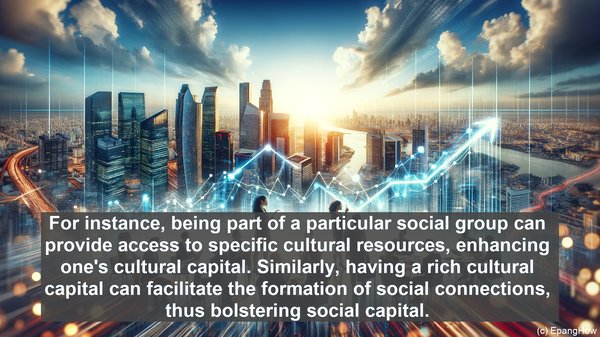Introduction: The Significance of Capital Beyond Finances
Hello everyone! When we hear the term ‘capital,’ our minds often jump to financial assets. However, in the realm of sociology and cultural studies, capital extends far beyond monetary value. Today, we’ll be exploring two crucial types of capital: social capital and cultural capital. While they may sound similar, they have distinct features and play diverse roles in our lives. Let’s dive in!
Defining Social Capital: The Power of Networks
Social capital refers to the resources, opportunities, and advantages that arise from our social connections and networks. It’s not just about the number of friends or followers we have, but the quality and depth of those relationships. Social capital encompasses trust, reciprocity, and shared norms, which can be invaluable in various contexts, from career growth to community support.
Unpacking Cultural Capital: Beyond Material Possessions
On the other hand, cultural capital revolves around knowledge, skills, and cultural assets that individuals possess. It’s not about tangible possessions, but rather the intangible qualities that shape our cultural competence. This can include familiarity with art, literature, music, and even language proficiency. Cultural capital often plays a significant role in determining social status and access to certain opportunities.

The Overlaps: Intersections of Social and Cultural Capital
While social capital and cultural capital are distinct, they are not mutually exclusive. In fact, they often intersect and influence each other. For instance, being part of a particular social group can provide access to specific cultural resources, enhancing one’s cultural capital. Similarly, having a rich cultural capital can facilitate the formation of social connections, thus bolstering social capital.
Implications and Benefits: Harnessing the Power of Capital
Both social capital and cultural capital have far-reaching implications. From an individual standpoint, they can contribute to personal growth, well-being, and opportunities. On a broader scale, these forms of capital are crucial for community development, social cohesion, and even policy-making. Recognizing and nurturing these capitals can lead to more inclusive and equitable societies.

